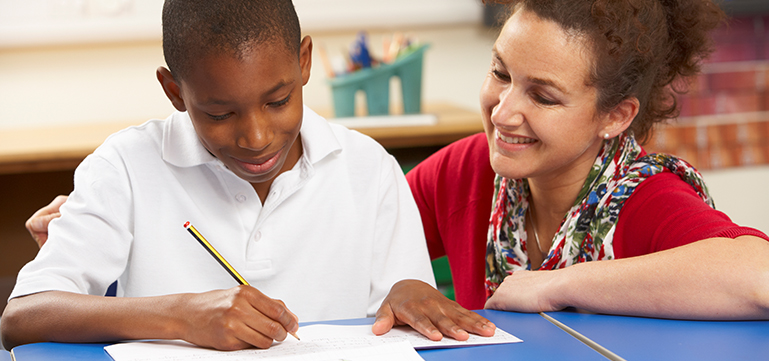Education leaders need to focus on improving teaching and learning

Chief Inspector Meilyr Rowlands says,
“What needs to be done to raise standards in education in Wales is becoming clearer and improving teaching will have a long-term effect on quality and standards in the classroom. The best teachers have high expectations, challenge their pupils, and think critically about their own practice. Leaders in education need to have a strong focus on providing suitable opportunities for the professional development of staff at all levels in order to nurture confident and creative teaching and learning.”
“It is by continuing to improve professional learning and school-to-school collaboration that we can drive out the variability that still exists in our education system.”
The Chief Inspector urges schools and other education settings to ask themselves how far their organisation has established a culture that encourages and fosters staff development and professional learning. The first chapter of the Annual Report contains ten sets of questions to help with this self-evaluation.
In schools like Severn Primary, Cardiff, that have improved the quality of their teaching, staff feel empowered and motivated to challenge current teaching practice and reflect on how best to improve teaching in their school. Additional case studies throughout the Annual Report highlight innovative ways that have improved the quality of teaching and learning, leadership and performance in schools and other education providers.
More findings from 2015-2016 inspections:
- The proportion of good or excellent standards (92%) in non-school settings for children under five is broadly similar to last year. However, standards of Welsh continue to be an area for development in a majority of English-medium settings and increasingly in Welsh-medium settings.
- Standards are good or better in around seven-in-ten primary schools inspected this year. Slightly over a fifth of primary schools were identified with excellent practice for at least one quality indicator. Pupils’ literacy skills continue to improve and standards of numeracy are good or better in seven-in-ten primary schools. However, in around a third of primary schools inspected this year, more able children underachieve because their work is not challenging enough. Leadership and management are good or better in nearly three-quarters of primary schools, but in the remaining schools, leaders lack urgency in making improvements.
- Secondary schools continue to have greater variability than primary schools, with more excellence but also more unsatisfactory practice. Teaching is good or better in only a minority of secondary schools inspected this year. In a majority of lessons in these schools expectations are not high enough, particularly for more able pupils. Leadership and management are good or better in around half of secondary schools, but in the remaining schools, leadership does not have enough impact on improving the quality of teaching and learning and standards.
- Standards were good in four of the special schools inspected this year and adequate in the remaining two. All four pupil referral units (PRUs) inspected this year were placed in a statutory category of follow-up. All of these PRUs have significant weaknesses in leadership and management.
- In post-compulsory education, both FE colleges and two of the three work-based providers inspected were identified as having excellent practice. Leaders in these providers have developed effective partnerships with a range of employers, schools and local communities that enrich learners’ experiences.
- Regional consortia know most of their schools well and categorise schools appropriately. Consortia generally challenge schools robustly on their performance, provision and leadership, but should be doing more to tackle the variability between schools, particularly secondary schools. School improvement activities also need to be evaluated better.
The Chief Inspector’s foreword to the report includes the key findings in education and training from the academic year 2015-2016.
Notes to Editors
The report will be published at: https://www.estyn.gov.wales/annual-report
All inspection findings from 2015-2016 are published at: http://data.estyn.gov.wales
Best practice case studies:
Anglesey
Cylch Meithrin Bodffordd
Bridgend
Bridgend College
Construction Industry Training Board (CiTB)
Caerphilly
Cwmfelinfach Primary School
Ysgol Gyfun Cwm Rhymni
Cardiff
Cardiff High School
Kitchener Primary School
Rhydypenau Primary School
Severn Primary School
Carmarthenshire
Bryngwyn Comprehensive School
Conwy
Ysgol Glan Gele
Denbighshire
Ysgol Plas Brondyffryn
Flintshire
Coleg Cambria
Cornist Park Community Primary School
Monmouthshire
Haberdashers’ Monmouth School for Girls
Sticky Fingers
Neath Port Talbot
Tonnau Community School
Ysgol Gynradd Gymraeg Castell Nedd
Pembrokeshire
Monkton Priory Community School
Powys
Ysgol Gymraeg Dyffryn y Glowyr
Rhondda Cynon Taf
Craig Yr Hesg Primary School
Treorchy Comprehensive School
Swansea
Cefn Hengoed Community School
Pontarddulais Comprehensive School